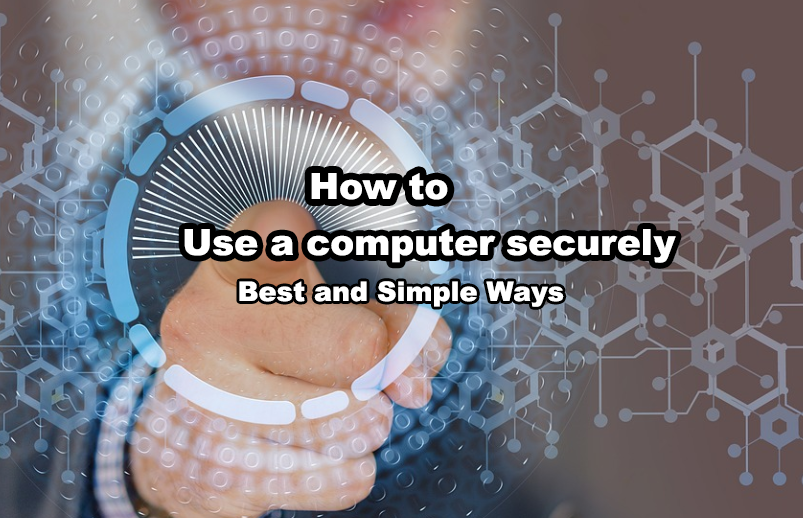Let’s see how to use a computer securely. We cannot generalize whether all computer users are well-versed in computer safety rules or not. There may be some situations that force them to use computers for their daily work. Do you know; if you are not highly skilled in computer knowledge, there is a risk of falling into the trap of cybercriminals, your personal information will get stolen, and you will be at risk.
Anyway, thankfully, there are some steps you can take to mitigate the risk of using your computer and keep yourself away from cyber hackers. Then let’s dive deeper into the precautions you should be aware of when using your computer, especially when connecting to the internet.
Use a firewall to protect your computer
A firewall is an important part of a comprehensive security plan that protects against hackers and dangerous malware. A firewall is a device that controls incoming and outgoing network traffic with the goal of preventing unwanted access to a computer. Applications running on a computer can be monitored and controlled by firewalls. This security tool helps protect computers from hostile attacks by blocking malicious software and shady network behaviour.
Carefully download files from the internet
Be careful when downloading files from the internet When downloading files from the internet, make sure the source of the file is acceptable and that the file is virus-free before downloading. Additionally, before downloading the file, make sure to read the terms and conditions.
Be aware of phishing emails and never click on links attached to them
Be careful when opening links in phishing emails. Cybercriminals send phishing emails, which are malicious messages designed to trick recipients into revealing personal information such as passwords and credit card details. These types of emails usually originate from a familiar source, such as a bank or organization, but do not have a valid URL address. Recognizing the warning signs of phishing emails is critical if you want to protect yourself.
This includes suspicious links, requests for personal data, and errors in grammar or spelling. Also, it is important to never click on links contained in phishing emails, as they may take you to untrustworthy websites.
Use encryption to protect your sensitive data
One of the greatest ways to protect sensitive data is to encrypt it. Data is scrambled during the encryption process so that only the intended recipient can understand it. This procedure helps ensure that only the intended recipient can see the data.
The type of data and the level of security required should be considered when choosing the data encryption technique to use. As well as, data encryption provides protection against unauthorized access, data loss, and data tampering.
Use a secure web browser to use a computer securely
The use of a secure web browser, such as Firefox or Google Chrome, is intended to protect users from dangerous websites and online activities. These trusted browsers pave a secure environment by blocking harmful websites, notifying malware downloads and encrypting data transmitted over the internet. Private surfing, password management, and better security settings are additional capabilities available in these secure online browsers.
Avoid logging into personal accounts or providing sensitive data when you use public Wi-Fi networks
When using public Wi-Fi networks, it is essential to avoid accessing private accounts and revealing sensitive information. We strongly advise you never to try to visit any accounts or websites that hold sensitive information, including bank accounts, credit card information, and other accounts.
Sharing personal information online is not a good practice. This includes sensitive information like your address, OTP, account information, social security number, banking information, etc.
It is very important to protect your identity and personal data from fraud and identity theft.
These are the important things to keep in mind to use a computer securely. Today, most of our personal information is tied to our computers, so be sure to use a password to prevent your computer from stealing your data.
